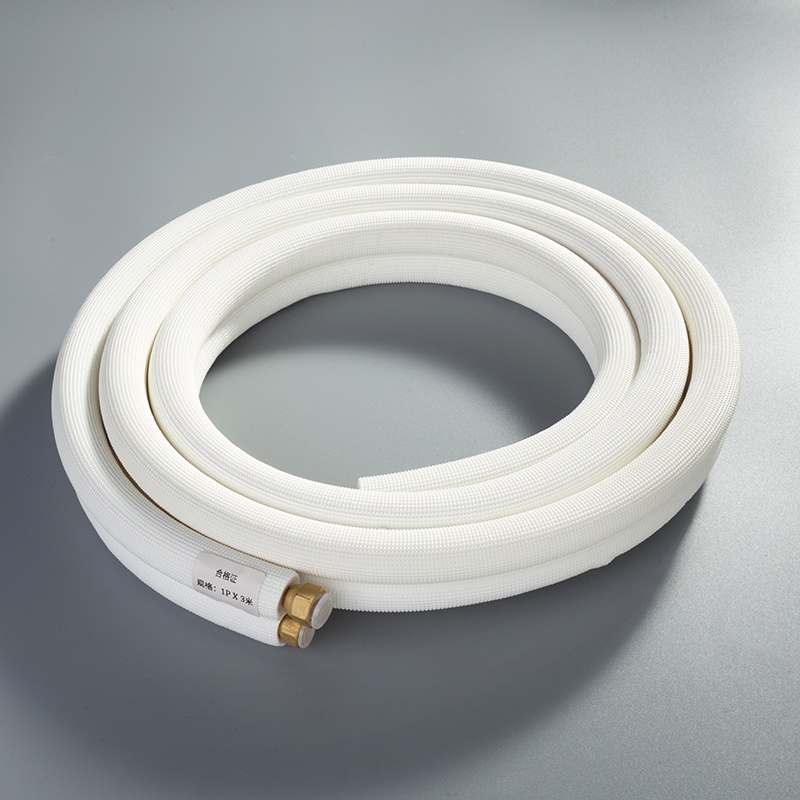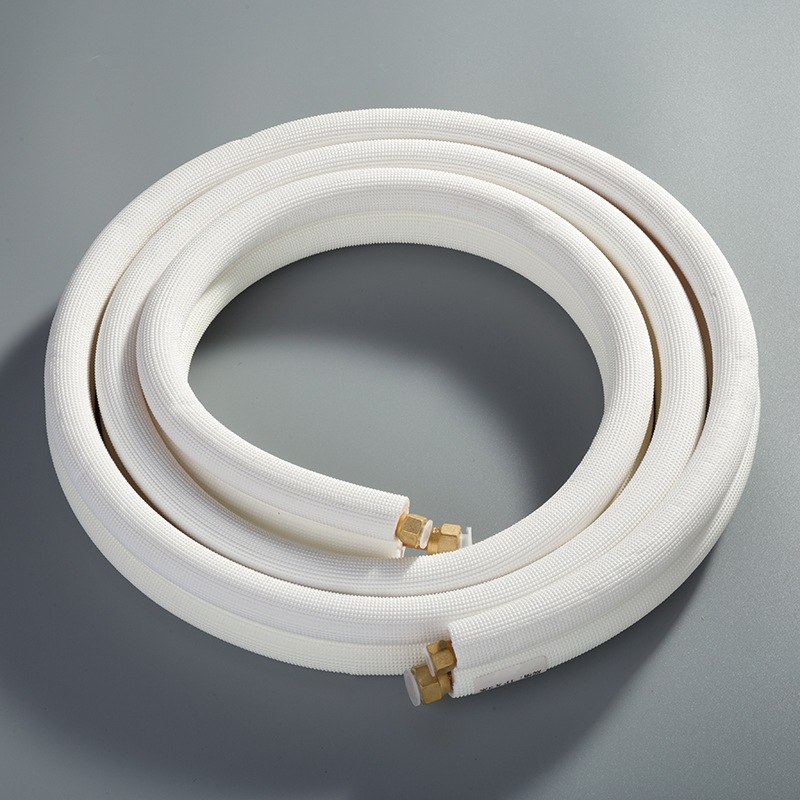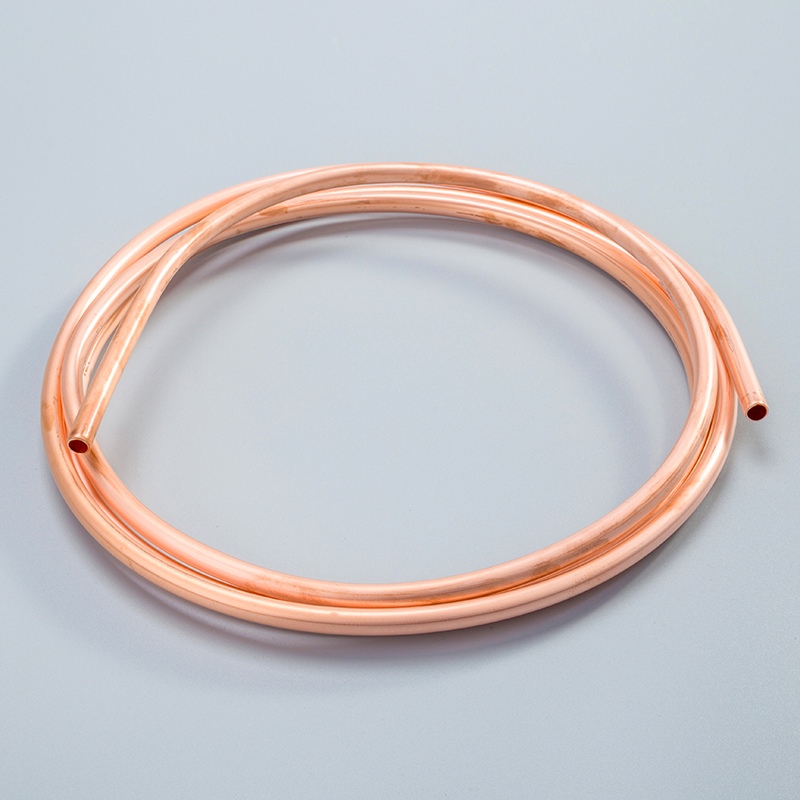How Sustainability Practices Transform Copper Pipe Manufacturing

The shift towards sustainable practices in modern manufacturing is revolutionizing industries worldwide. In the copper pipe manufacturing sector, this transformation is crucial for environmental preservation and resource optimization. As manufacturers analyze the sustainability practices in 1/4 3/8 twin copper pipe coils manufacturing advancements, they pave the way for a greener future. This blog explores the innovative approaches shaping the industry's landscape, from reducing waste to enhancing energy efficiency.
The Importance of Sustainability in Manufacturing
Environmental Impact of Traditional Manufacturing
Resource Depletion
Extraction and utilization of raw materials lead to resource scarcity.
Overexploitation of natural resources threatens the balance of ecosystems.
Continuous mining activities contribute to land degradation and habitat destruction.
Pollution and Waste
Traditional manufacturing processes release harmful emissions into the atmosphere.
Improper waste disposal contaminates soil and water sources.
The accumulation of industrial waste poses significant health risks to communities.
Application of Sustainability Practices in Copper Pipe Manufacturing

Use of Recycled Copper
Recycled copper plays a pivotal role in sustainable manufacturing practices within the copper pipe industry. Sourcing and Processing Recycled Copper involves meticulous collection and refining processes to ensure high-quality material for production. Manufacturers carefully select scrap copper sources, which are then melted down and purified to create new pipes. The Quality and Performance of Recycled Copper Pipes are comparable to those made from virgin copper, showcasing the efficiency and durability of recycled materials.
Energy-Efficient Production Techniques
Implementing energy-efficient methods is paramount in enhancing sustainability in copper pipe manufacturing. Advanced Manufacturing Technologies like automated systems and precision tools streamline production while minimizing energy consumption. By integrating Renewable Energy, such as solar or wind power, manufacturers can further reduce their carbon footprint and reliance on traditional energy sources.
Waste Reduction and Management
Efficient waste management practices are essential for sustainable operations in the industry. Minimizing Scrap and By-products through optimized production processes reduces material waste and environmental impact. Additionally, Recycling and Reusing Waste Materials promote a circular economy by repurposing discarded materials into new products, further reducing the industry's ecological footprint.
Benefits of Using Recycled Copper

Energy Conservation
Comparison of Energy Use: Recycled vs. Virgin Copper
Recycling copper significantly reduces energy consumption during the production process.
Melting down recycled copper requires up to 85% less energy compared to extracting and refining virgin copper.
This substantial energy saving contributes to a more sustainable manufacturing approach.
Case Studies and Data
Various studies have demonstrated the energy-saving benefits of utilizing recycled copper in manufacturing.
For instance, a recent analysis revealed that using recycled copper in pipe production led to a 40% reduction in overall energy usage.
These case studies highlight the practical advantages of incorporating recycled materials into the manufacturing process.
Reduced Carbon Emissions
Emission Reduction Statistics
The utilization of recycled copper results in a significant decrease in carbon emissions.
By reducing the need for primary production, manufacturers can lower their carbon footprint and environmental impact.
Statistical data shows that switching to recycled copper can lead to a 60% reduction in greenhouse gas emissions.
Long-term Environmental Impact
Opting for recycled copper over virgin copper has long-lasting positive effects on the environment.
The continuous use of recycled materials helps mitigate climate change by minimizing resource extraction and energy consumption.
Over time, this sustainable practice fosters a healthier ecosystem and promotes responsible resource management.
Role of Regulations in Promoting Sustainable Practices
European Union Regulations
Key Policies and Directives
Implementing stringent environmental regulations
Setting standards for sustainable manufacturing practices
Monitoring and enforcing compliance with eco-friendly guidelines
Impact on Copper Pipe Manufacturing
Influencing the adoption of sustainable technologies
Encouraging the use of recycled materials in production processes
Shaping the future of environmentally conscious manufacturing practices
Global Regulatory Landscape
Comparison of Regulations in Different Regions
Evaluating the diversity of environmental policies worldwide
Identifying common goals for sustainable development across regions
Analyzing the impact of varying regulatory frameworks on manufacturing industries
Future Trends in Environmental Legislation
Anticipating advancements in sustainability regulations globally
Predicting increased emphasis on eco-friendly initiatives
Embracing innovative approaches to address environmental challenges
Future Technologies and Practices for Enhanced Sustainability
Innovations in Copper Pipe Manufacturing
Emerging Technologies
Implementation of I-ROX technology to reduce energy consumption and access previously untapped copper reserves.
Utilization of automated systems for precision manufacturing, enhancing efficiency and product quality.
Integration of IoT devices for real-time monitoring and optimization of production processes.
Research and Development Focus Areas
Exploration of sustainable coating materials to improve pipe longevity and corrosion resistance.
Investigation into advanced welding techniques for seamless joint connections, ensuring structural integrity.
Development of smart sensors for predictive maintenance, minimizing downtime and optimizing operational performance.
Copper stands as a pivotal element driving economic and technological progress. Developing circular economies, utilizing bio-based materials, and embracing recycling practices are crucial steps towards sustainable manufacturing. The industry's future hinges on the responsible use of resources and the reduction of waste and pollution. Manufacturers and stakeholders must prioritize sustainable practices to ensure a greener, more efficient tomorrow. With the abundance of copper reserves supporting key sectors, the path to a thriving, eco-conscious manufacturing landscape is within reach.
See Also
Insights on Environmental Benefits of Copper Pipe Over PVC
Exploring the Eco-Friendly Effects of Dual Copper Pipe Coils
Maximizing Efficiency: A Comprehensive Copper Pipe Maintenance Guide
Revealing the Manufacturing Quality Standards for Copper Pipe Coils
The Progression of Half-Inch Copper Pipe in Building Projects


